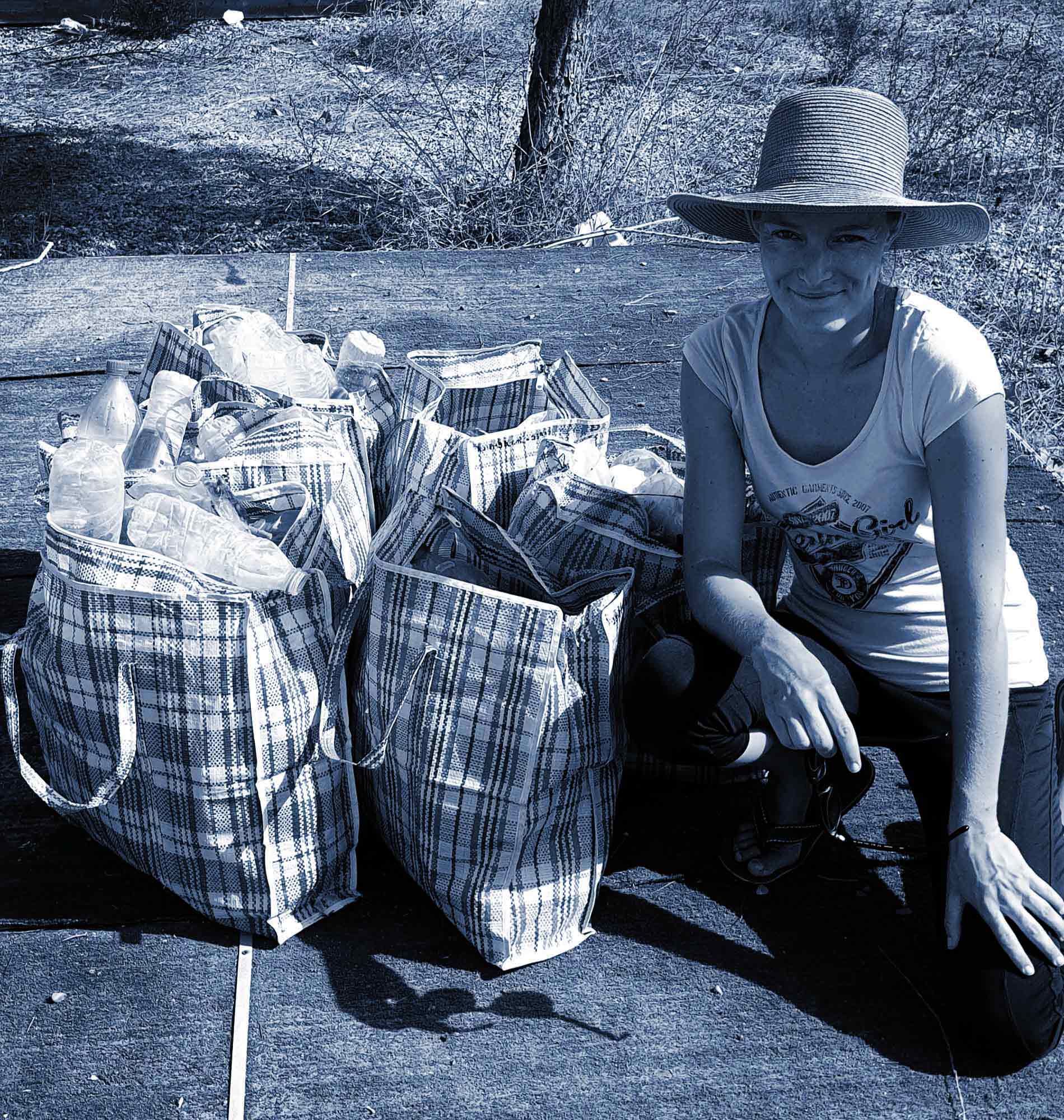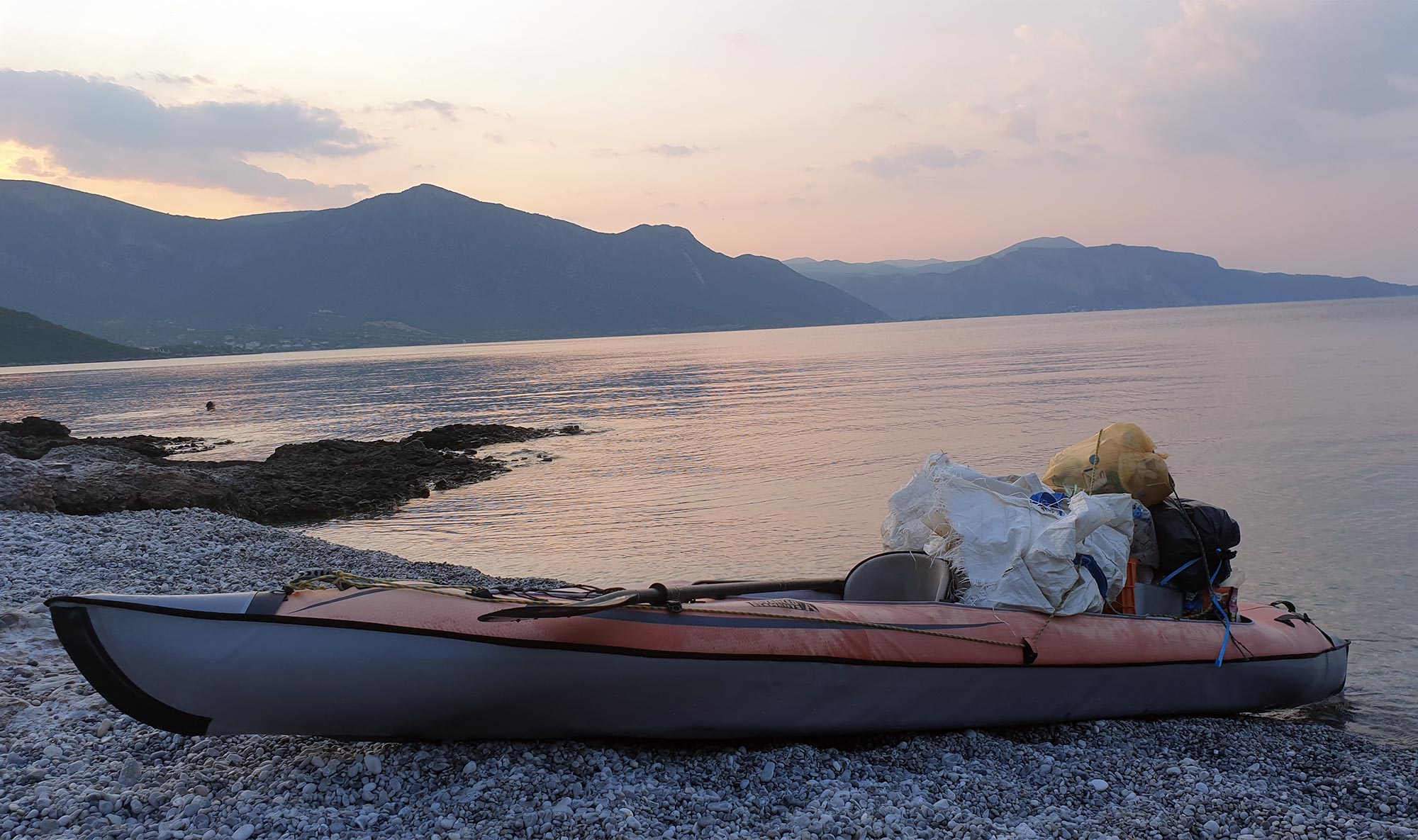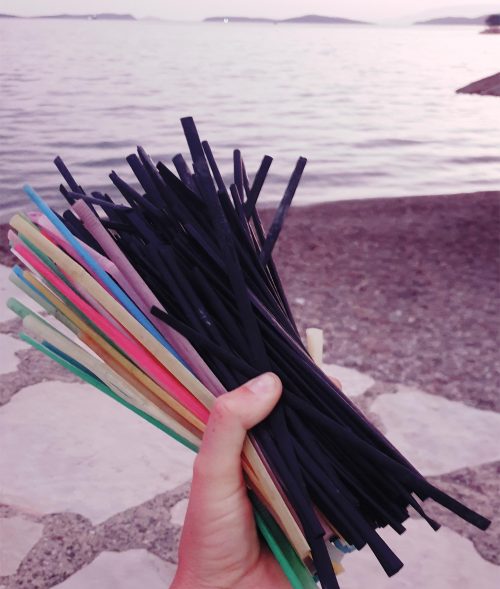
INA WO(A)NDERS: what do beach clean-ups bring?
Every year, 10 million tons of plastic end up in our seas - a tide that one person alone can certainly not do much about. In this column, our author Ina explains why she continues to clear beaches of plastic waste and is part of beach clean-ups.
Beach clean-ups have become a habit for me since exploring the coasts of Europe by sailboat.
15 PET bottles, 7 plastic bags, a toy car, lots of styrofoam, a lighter: On a wonderful spring morning in Marina di Ragusa in Sicily, I picked up rubbish again during my morning walk on the beach. For me, beach clean-ups are ever since I explored the coasts of Europe by sailboat, become a habit. I often even find it to be a meditative activity that helps me sort myself out when I'm feeling cluttered inside. In addition, I can see what I have achieved within a very short time – unlike when juggling letters on the PC. And have the opportunity to reflect extensively on the world, our consumer society and our waste problem. Bottle by bottle, bag by bag, the awareness that something needs to change is manifested in me. And I pretend to myself that I'm already on the right track in this regard.

Also on this Sicilian spring morning I was lost in thought while collecting when suddenly a tractor stopped next to me. Then two men in bright orange dungarees gave me and my garbage bag confused looks. They murmured a morning greeting - and then went to work. to my work. The tractor pulled a thing behind it that shoveled up the top layer of sand, sifted out the garbage and left the finest dream beach behind. Meter by meter he worked his way forward with a speed and efficiency that left me disillusioned and slumped. The tractor officially heralded the tourism season, in which a clean beach is "worth it" again. And in which do-gooders like me are no longer needed.
Hoping that beach clean-ups will make a difference
Around ten million tons of plastic end up in our oceans every year. Only a small part of it is washed up on the coasts, like here in Sicily, where it can be collected and then recycled. The rest floats in the water and breaks down into smaller and smaller particles. They are mistaken for food by fish, turtles and birds and thus end up not only on the seabed, but often on our plates as well. If this continues, it will already be in our seas By 2050 there will be more plastic than fish. "Ten million tons," I thought out loud as I watched the tractor do its high-efficiency beach clean-up. Even he can't do anything about it. Nobody can do anything there. And I certainly don't.
I confess: this day put a little damper on me. And I haven't cleaned up the beach in Marina di Ragusa since. But there were many other beaches where no tractors were at work. What's the point, what's the point - apart from the meditative cleansing effect? Despite everything, I haven't given up hope that beach clean-ups can make a difference - even if just a micro-little bit. Perhaps the effect cannot be measured in tons but only in sparks of consciousness.

Like the day in Astakos when a couple of youngsters gave me a thumbs up after watching me emerge straw by straw between the pebbles. Or in Trizonia, when a man spontaneously pitched in and then thanked me with a princely dinner. Or in Croatia, when a little girl asked her mother to explain to her why the woman had to pick up other people's rubbish - and how it got there in the first place. In addition to the moments in which I can encourage others to imitate or at least to think, the clean-up actions that nobody is looking at also count for me. Because when people come to a clean beach, the likelihood increases that they will at least take their own rubbish home with them. Just like the memory of a place where the world was fine - maybe just for a plastic-free day.
Have you ever taken part in a beach clean-up? Did you have the feeling that you were making a difference – or did the garbage flood wash your good mood into the sea? I am always happy to receive feedback, suggestions or questions – either as a comment or directly by e-mail [email protected].

Photos: Ina Hiester
Ina Hiester
Ina is a digital nomad and travels through Europe by land and sea. The journalist is always on the lookout for special places for Good Travel, philosophizes about travel in her column, takes photographs, makes music and writes articles on all kinds of environmental and sustainability topics.






COMMENT